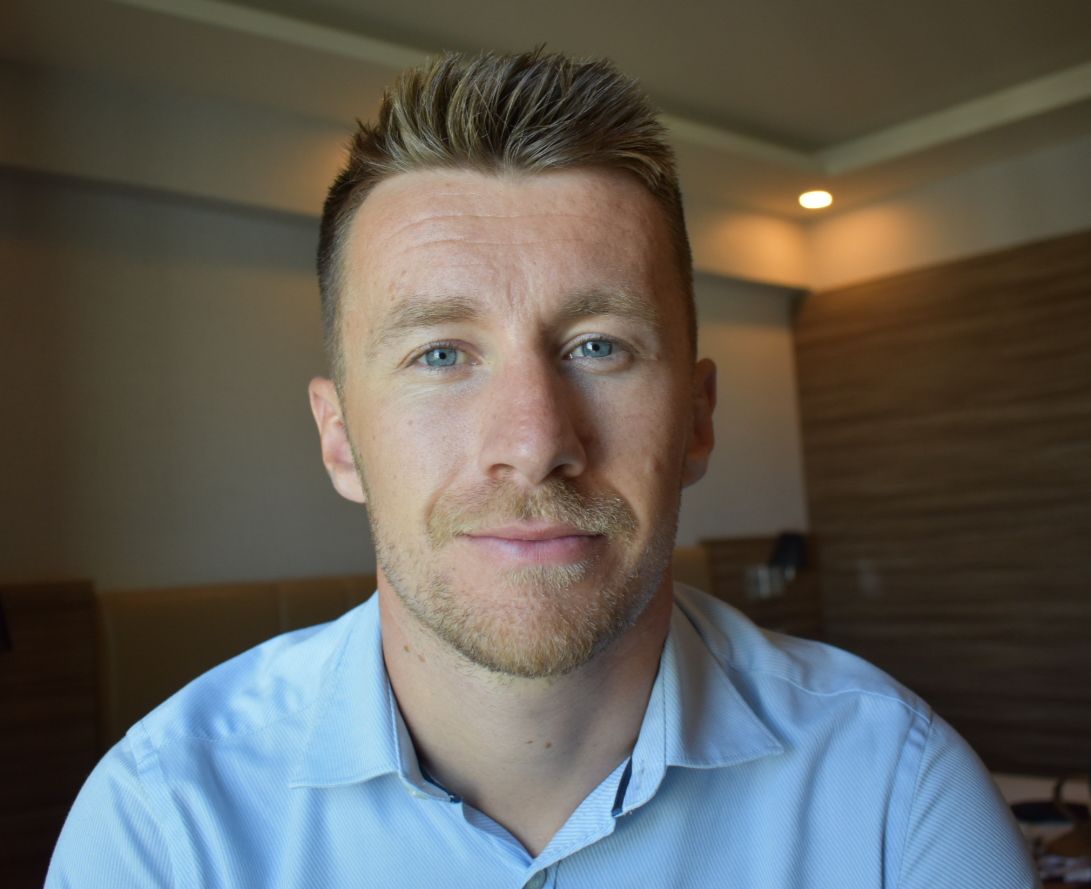Daniel Higgins, Danish Refugee Council

Why did you choose to study Global Development at UCPH and how has your experience been?
I chose it basically to apply my graduate studies in Economics and Sociology in Space, I was passionate about. I never thought personally that a full time job would make me rich ever... so I thought I might as well work in an area where I can express my passion in something that I think is worthwhile so I went to the development field. Then of course, it's in a nice place and it's also free if you have SU, so it makes it easy for you to come and choose this master.
What do you highlight the most from this experience?
One of the most valuable experiences I'd say probably the different perspectives from the network, college, friends, and professors that are coming from such diverse fields. It was nice to touch points on a lot of different subjects and have the flexibility to explore what piqued my interest. All professors and PhD students were also super open so that was very nice. I could really feel what was for me in the development sector and pursue whatever I was interested in – which was a really big plus.
What was your employment situation after finishing the degree?
For the employment, I took two months' holidays travelling after graduation, but then I actually got a job pretty much straight away when I started looking. It was a short-term contract for the Danish Refugee Council (DRC), where I used some very specific skills in event management and design to get the position. It was very personalised and it was a three-month contract, so I thought I had a much higher chance of getting it. I think this was just a serendipity and it worked out well for me, so I got that straight away. Then I made it clear about my passion to stay in the sector and to stay with DRC, which is in my eyes a good NGO. So, they've kept me on and it's been a year now and I made my passions clear to them and where I wanted to work, even though it wasn't necessarily where I started working, but even now I've moved laterally. So for me it has turned really well. More specifically on that, I guess I started in the innovation unit working on an annual event, annual innovation event, and then I moved around the innovation team working with the youth agenda and not so much with the climate agenda, but a small bit with innovative finance and private sector partnerships within the innovation field and then moving over to the economic recovery unit. I am currently working as an innovation and partnership specialist still at the Danish Refugee Council!
What advice would you give to current GD students and recent graduates?
I'd say just talk to as many people as you can and really don't be afraid to challenge the professors or challenge your classmates. Don't be afraid to reach out to people because I think it's the most important thing to get your name known and to make these connections and increase your network. And don't be afraid to ask for anything - if you don't ask, you don't get. And be persistent, I would say. It's nice to get good grades, but they're not necessarily the be all and all. Just make sure, stay healthy and you enjoy your experience because it will end before you know it.
Also, if you can pick or narrow down sooner or later what kind of fields you want to work in and already get some work experience of any kind in these fields, it's a huge advantage to start earlier or rather than later. yes, even if you don't know what you want to do, pick your top three and just get experience and something like that, and ask professors how to get in or do some volunteer work or do some extra internships or some student work if you can do it, because it really helps to get those early career opportunities.
I was wondering if, considering the current war(s) context, your vision towards the field of global development is still the same as when you entered the career. And if it has changed, how has it changed?
While the current conflict situations are deeply concerning, my perspective on global development (GD) has remained largely consistent since my student days. I've always understood the vital role of GD, especially as we face increasing global displacement challenges. The key for me is how we engage in this space effectively.
Despite the grim reality of war, my focus is on contributing positively within the GD field. At the moment, for me, this involves securing new funding sources, driving innovative solutions, and building strategic partnerships to enhance our programming. I do think we need to keep questioning the sector, as huge inefficiencies on all levels are evident. I believe the GD alumni are pretty good at that already though. It is more a question of realising where each person best fits in the puzzle and where they can make the most impact in the sector as an individual and as part of a larger collective.
